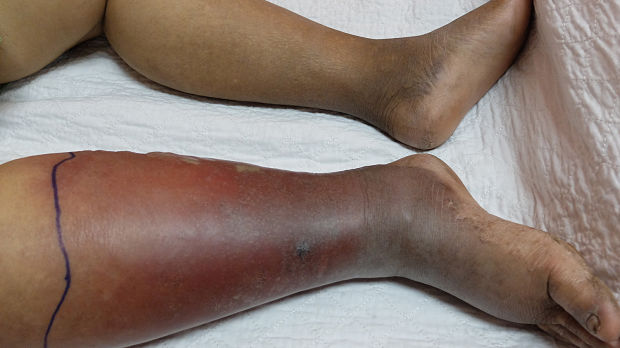Do Derm Consults Reduce Cellulitis Hospital Stays and/or Antibiotic Use?
Cellulitis can be a costly infection for hospitals as studies place the cost around $4.5 billion of health care spending. Inappropriate diagnosis and treatment of cellulitis leads to unnecessary antibiotic use and that translates into somewhere between $195 and $515 million in avoidable health care costs each year.
A recent study examined whether including a dermatology consult earlier in the treatment cycle improved both the treatment of hospitalized patients with suspected cellulitis and their ultimate outcomes. Over a four year period in an emergency department observation unit, patients with suspected cellulitis were randomized into two groups: one received a dermatology consult and the patients in the control group received treatment by the medicine/ED team (which sometimes did include a dermatology consultation). All patients were offered an outpatient dermatology follow-up. The study examined length of hospitalization and duration of intravenous (IV) antibiotic use as primary outcomes and secondary outcomes included number of antibiotics used, clinical improvement at 2 weeks, and hospital readmission rate at 1 month.
The results showed that length of antibiotic use and hospital stays were lower in the intervention group, though only length of hospital stay did not quite reach statistical significance. Dermatologists were also more likely to identify pseudo cellulitis and change treatment regimens to a more appropriate course of treatment. More patients in the intervention group reported improvement at the 2-week interval.
The authors suggest that collaboration with dermatology specialists can improve outcomes by treating modifiable risk factors in true cellulitis patients, and avoiding unnecessary antibiotics in patients with mimicking diagnoses. These findings are helpful as a way to control health care costs due to better antibiotic stewardship and enhance patient outcomes.
